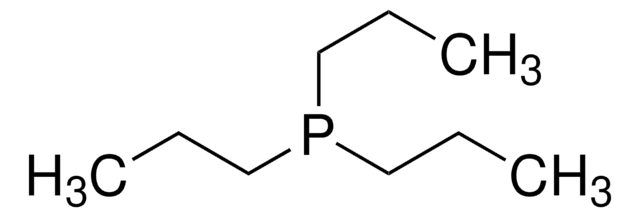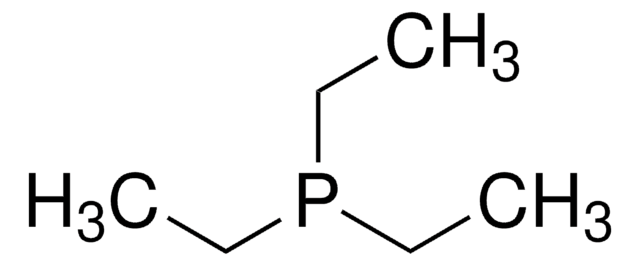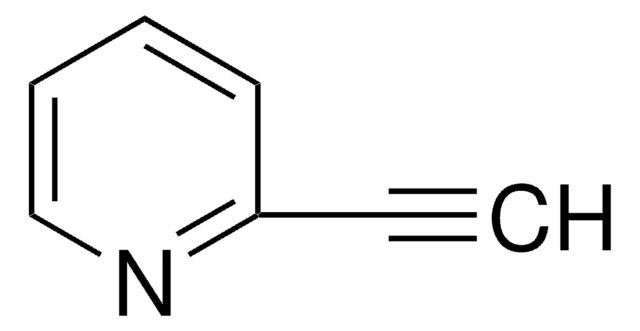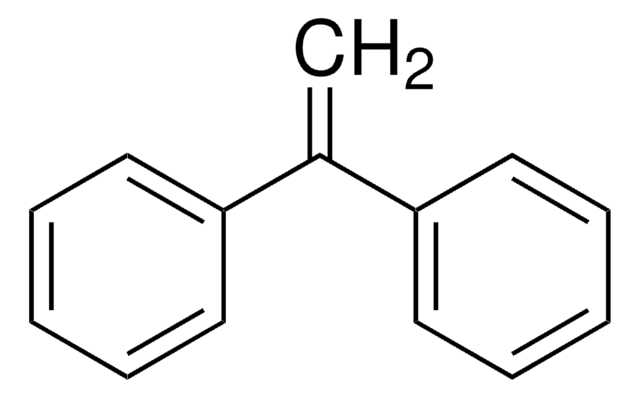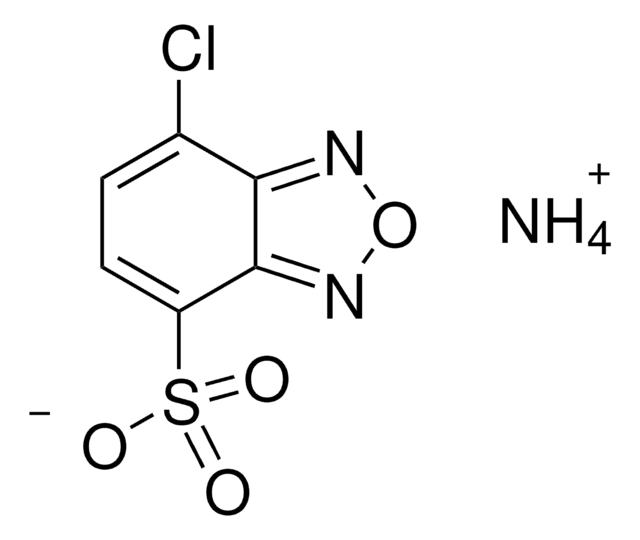901440
Triethylphosphine solution
1.0 M in 2-methyltetrahydrofuran
Synonym(s):
PEt3, Triethylphosphorous solution
About This Item
Recommended Products
form
liquid
Quality Level
reaction suitability
reagent type: ligand
reaction type: Arylations
concentration
1.0 M in 2-methyltetrahydrofuran
density
0.843 g/mL
functional group
phosphine
SMILES string
CCP(CC)CC
InChI
1S/C6H15P/c1-4-7(5-2)6-3/h4-6H2,1-3H3
InChI key
RXJKFRMDXUJTEX-UHFFFAOYSA-N
Looking for similar products? Visit Product Comparison Guide
Related Categories
Application
- Regioselective formation of alcohols from hydrocarbonylation of alkenes
- Bronsted acid-assisted synthesis of dihydropyrones from aromatic aldehydes and allenoates
- Silaboration of enynes
- Conversion of phenylacetic acids to phenylacetonitriles of benzonitriles
- Thermal decomposition of platinum and palladium naphthalenediyl
- Asymmetrical Morita-Baylis-Hillman reaction
- Regioselective formation of alcohols from hydrocarbonylation of alkenes.
- Bronsted acid-assisted synthesis of dihydropyrones from aromatic aldehydes and allenoates.
- Silaboration of enynes.
- Conversion of phenylacetic acids to phenylacetonitriles of benzonitriles.
- Thermal decomposition of platinum and palladium naphthalenediyl.
- Asymmetrical Morita-Baylis-Hillman reaction.
related product
Signal Word
Danger
Hazard Statements
Precautionary Statements
Hazard Classifications
Acute Tox. 4 Oral - Eye Dam. 1 - Flam. Liq. 2 - Pyr. Liq. 1 - Skin Corr. 1B
Supplementary Hazards
Storage Class Code
4.2 - Pyrophoric and self-heating hazardous materials
WGK
WGK 3
Flash Point(F)
8.6 °F
Flash Point(C)
-13 °C
Choose from one of the most recent versions:
Certificates of Analysis (COA)
Don't see the Right Version?
If you require a particular version, you can look up a specific certificate by the Lot or Batch number.
Already Own This Product?
Find documentation for the products that you have recently purchased in the Document Library.
Our team of scientists has experience in all areas of research including Life Science, Material Science, Chemical Synthesis, Chromatography, Analytical and many others.
Contact Technical Service